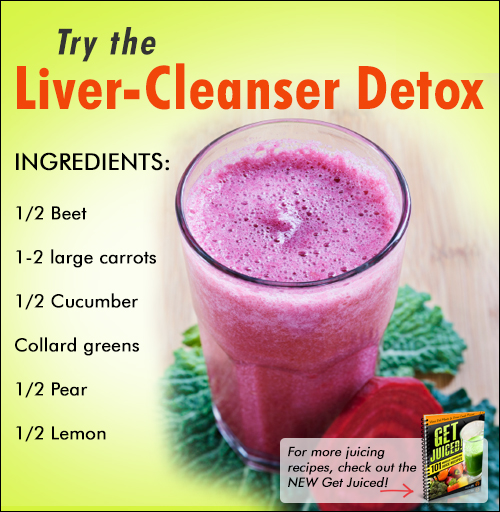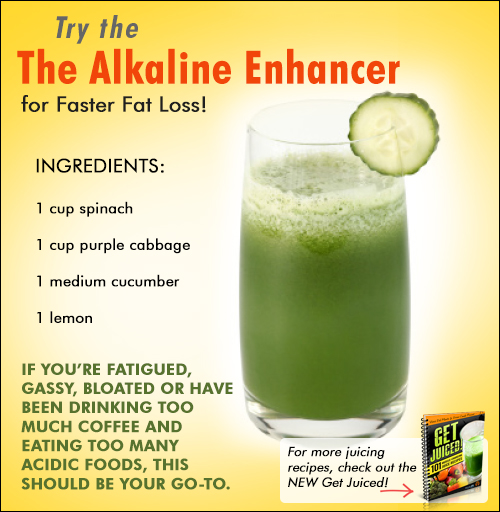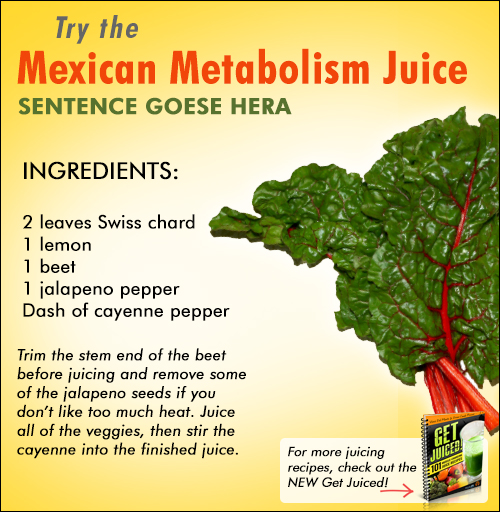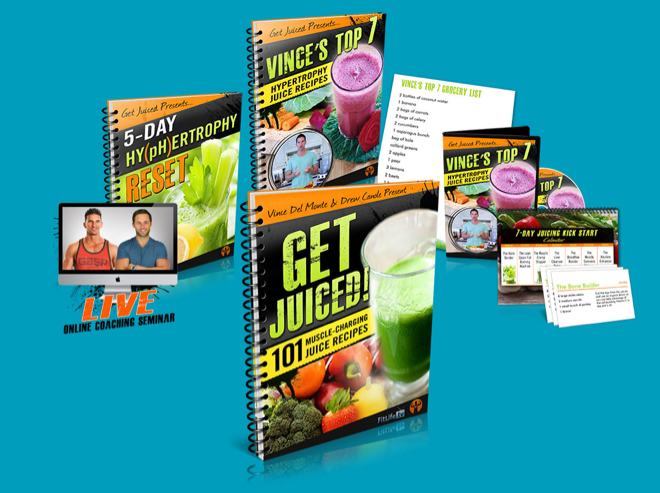Question: Shawna, I thought we should just say NO to juice? You emailed this week about juicing as a way to increase nutritional density and fat loss. It seems there’s some conflicting information here. I thought you said we should steer clear of juice and liquid calories – period. You said that it’s best to eat fruit in particular for it’s fiber and micro-nutrients. Can you clear this up?
Answer: YES! This needs clarification. ‘Juicing’ is actually different than drinking ‘juice’. There are four common mistakes with juicing that I want to point out.
Juicing Mistake # 1: Using Too Much Fruit
Fresh fruit is good. It’s loaded with antioxidants and vitamins that your body needs. But it’s also loaded with sugar.
When you eat whole, fresh fruits, the absorption of those sugars is slowed by all of the fiber the fruit contains, which helps prevent huge spikes of insulin into your bloodstream.
But with juicing, most or all of that fiber is removed. If you’re using a blender and drinking the pulp as well as the juice, you’ll still be getting some fiber to slow that absorption, but not nearly as much as you would by eating the whole fruit. If you’re using a juicer, then you are not getting any fiber at all.
A huge part of the benefit of juicing is giving those nutrients a straight shot into your bloodstream, muscles and organs. However, when you’re drinking fruit juices, all of that sugar hits your bloodstream incredibly quickly and all at once. This causes a dramatic spike in insulin release and when insulin is present in the bloodstream, your body is triggered to store fat. Repeating this over and over can also begin to cause insulin sensitivity issues.
The proper way to use fruit in juicing is to limit yourself to using half of a low-glycemic fruit like an apple or pear to sweeten up some of the more bitter or tasteless vegetable juices. If you do want to drink a fruit juice, try to stick with berries such as blueberries, strawberries, blackberries and raspberries. They’re loaded with antioxidants and rather low on the glycemic scale but they will still give you a sweet treat and a really good energy boost.
Juicing Mistake #2: Not Getting a Wide Enough Variety of Ingredients
One of the reasons that juicing is so great is that most of us don’t get nearly enough fresh vegetables in our diets. You should be eating between 16-20 servings of fresh vegetables per day for optimal health. But how many people have the time or the appetite to do that, even if they love vegetables?
The other thing is that even those of us who do eat several servings of vegetables every day tend to stick with four, five or six favorites. Those favorites might be great for you, but they are giving you a very limited variety of nutrients.
Dark, leafy greens provide a completely different nutrient variety than do dark, red vegetables. Orange veggies have antioxidants that purple veggies don’t.
Don’t make the same mistake with juicing that people make with whole vegetables, rotating through the same few vegetables day in and day out. You want to get a wide variety of vegetables of all colors in your juices and that’s really easy to do with just a handful of recipes because most recipes have a good mixture of vegetables from different families. This is how you get that antioxidant blast that’s going to propel your nutrition and your body to the next level.
Juicing Mistake #3: Being Inconsistent
In order to get the benefits of juicing, you have to be consistent. What it does mean is that you have to do it on a regular basis to really benefit. Don’t forget, you’re supposed to be eating a minimum of 16 servings of vegetables per day. Whether you decide to juice first thing in the morning and after your workouts or as a pick-me-up in the late afternoon, you should to stick to a consistent plan. Otherwise, you’ll not be getting the true benefits from juicing.
Juicing Mistake #4: Going on a Juicing “Diet”
Juicing is not a weight-loss diet. Yes, you can lose a great deal of weight through juicing and faster than you would believe, but not by replacing most or all of your food with juice.
Going on a juice cleanse for a few days or a week can do wonders for your weight loss efforts, but only because it will help reset your metabolism, get your hormones back in line and clean out your digestive system. It is a short-term tool for both health and getting your body ready to burn some serious fat, but it is short-term.
If you try to lose body fat by consuming nothing but juice or even by getting by on nothing but a ton of juice and a few servings of protein, you’re going to get results that are exactly the opposite of what you’re hoping for.
First, you are going to be starving. You will be unsatisfied and likely go off on a binge eating feast. Any fat you lost in the meantime is going to come right back on, and the truth is that most of the weight you lose will be lean muscle mass and water.
It’s very doubtful that you will be getting enough protein on a juice “diet,” so your body will very quickly begin catabolizing (cannibalizing, really) the protein in your muscles. You will be fatigued, malnourished and have a lot less muscle.
Juicing can be used as a supplement to your diet to help you lose body fat. Your digestive system will start working correctly. Your hormone levels, especially cortisol, insulin and testosterone, will be corrected. Your immune system will get a huge boost, reducing inflammation. You will have an incredible amount of energy, which means you will work out harder. You don’t need to go on a juice “diet,” you just need to juice.
==> Click here to learn how to Juice Easily & Properly
My daughter, Hannah is the ‘juice pusher’ in my house. I love it when I come to my desk to find a concoction she’s made. There have been some real ‘experiments’, but thanks to these cool recipes, all her concoctions now are yum!








